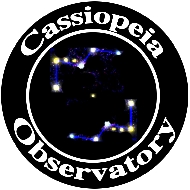Moon, Barnard Objects, Satellite
Posted: 6 October 2024
Although the nights were clear, I did not open the observatory on Thursday, 3 October 2024, and Friday, 4 October. Thursday night I attended a special Indiana University Astronomy Department alumni event. Friday, I was at Kitt Peak National Observatory for a special night of viewing using the WIYN 3.5 meter telescope.
|
Open: Saturday, 5 October 2024, 1755 MST Temperature: 80°F |
Session: 2016 Conditions: Clear |
Equipment:
12" f/8 LX600 w/StarLock
2" 24mm UWA eyepiece
Focal reducer
Camera:
iPhone 15 Pro Max
D850 DSLR
1759 MST: LX600 ON, StarLock OFF, High Precision OFF.
Viewed the Moon, 102X.
1803 MST: Sunset.
Prepared the D850 DSLR for imaging.
1818 MST: Relaxed on the observatory patio bench.
1831 MST: iPhone 15 Pro Max photo (5X lens) of the crescent Moon and Venus.
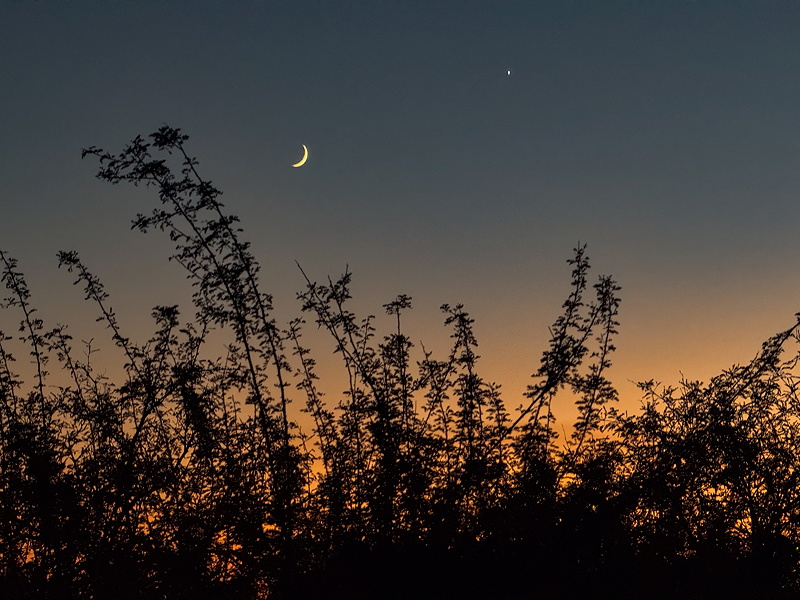
1836 MST: Back at the 12" telescope, took this handheld afocal 102X iPhone photo of the Moon using the Camera app (1X lens).
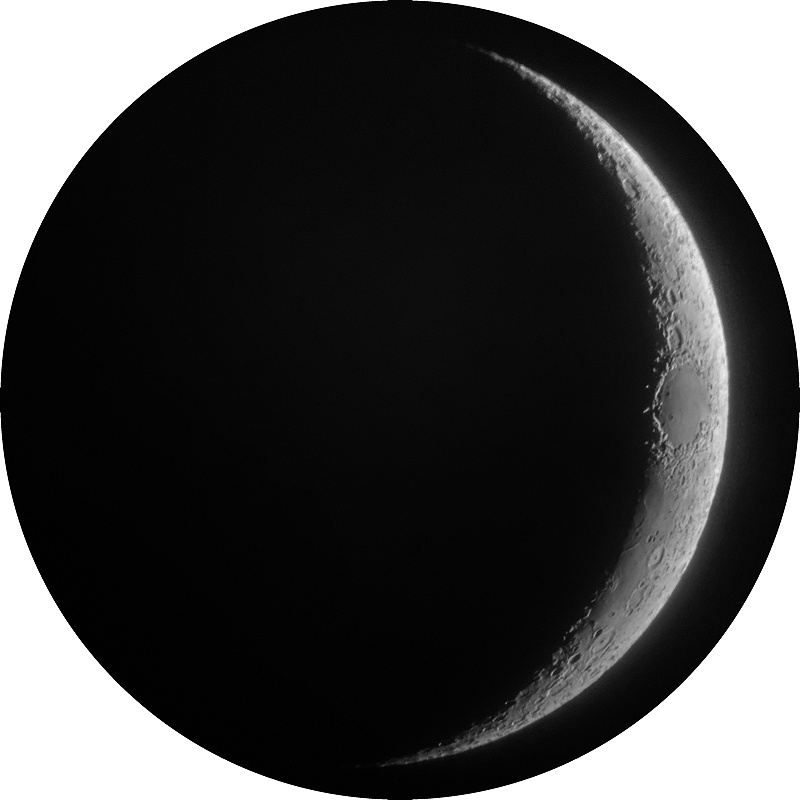
Viewed Venus, 102X.
1842-1915 MST: Relaxed on the bench and watched the stars come out.
1916 MST: High Precision ON.
Observed, or tried to, the following Barnard Objects (dark nebulae), 102X: B186, B313, B102, B314, B103, and B188.
Mounted the D850 DSLR at prime focus + focal reducer, focused on the star Altair, locked the 12" primary mirror, and slewed to the first Barnard Object to be imaged this session.
1954 MST: StarLock ON.
Took the following StarLock autoguided Barnard Object images (30 seconds, ISO6400).
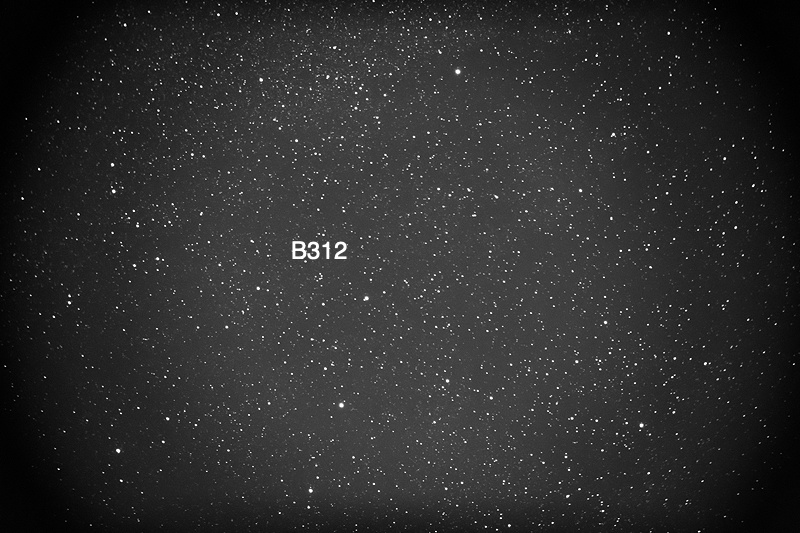
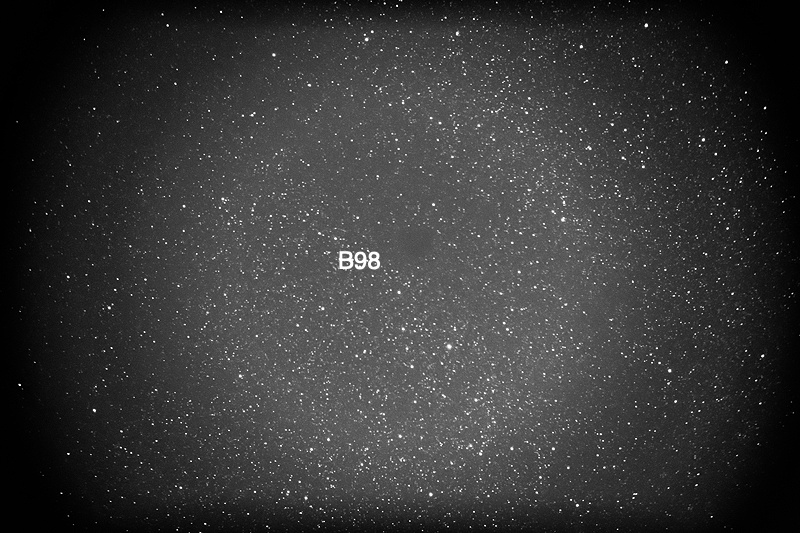
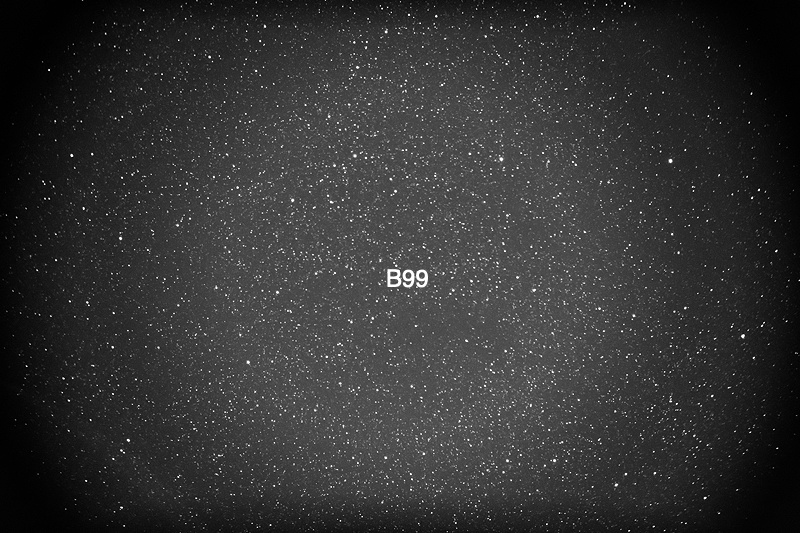
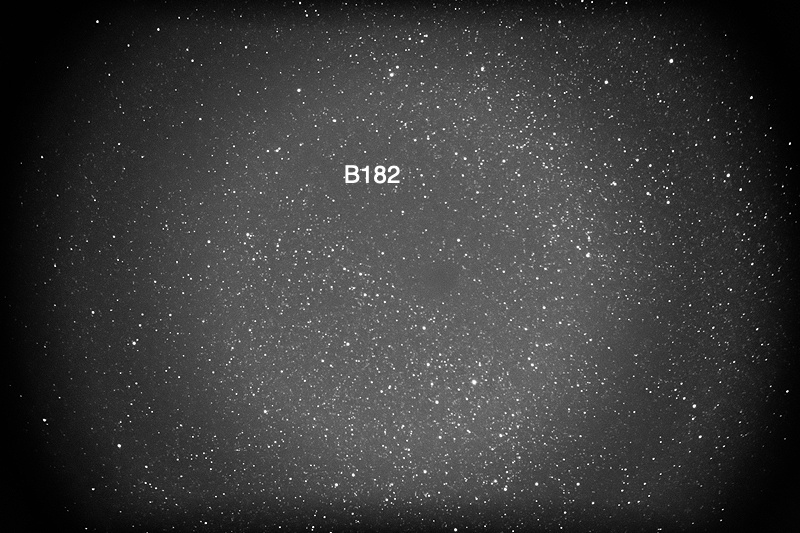
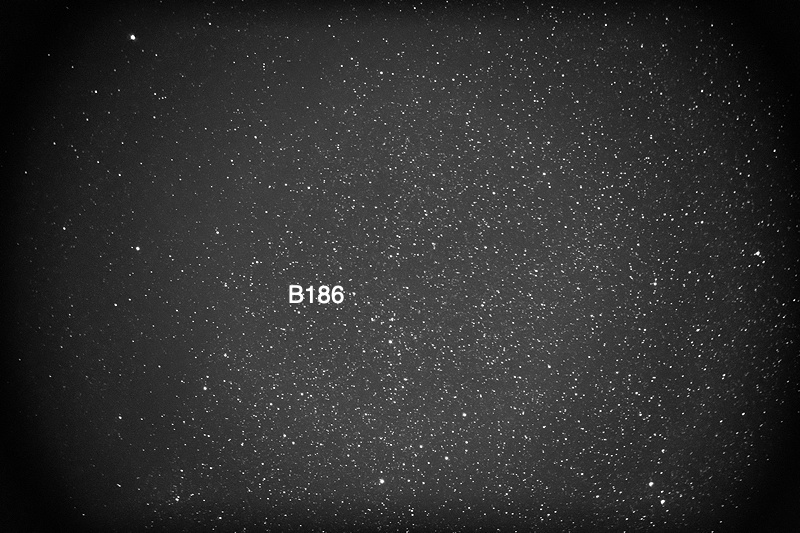
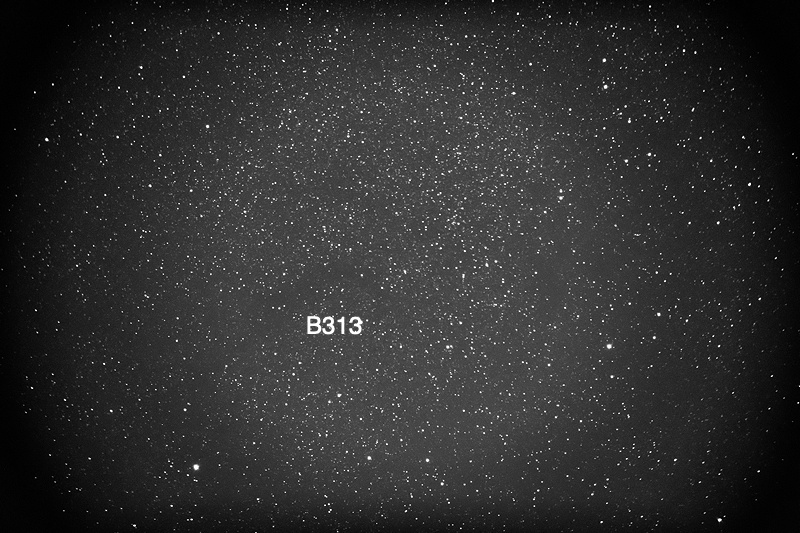
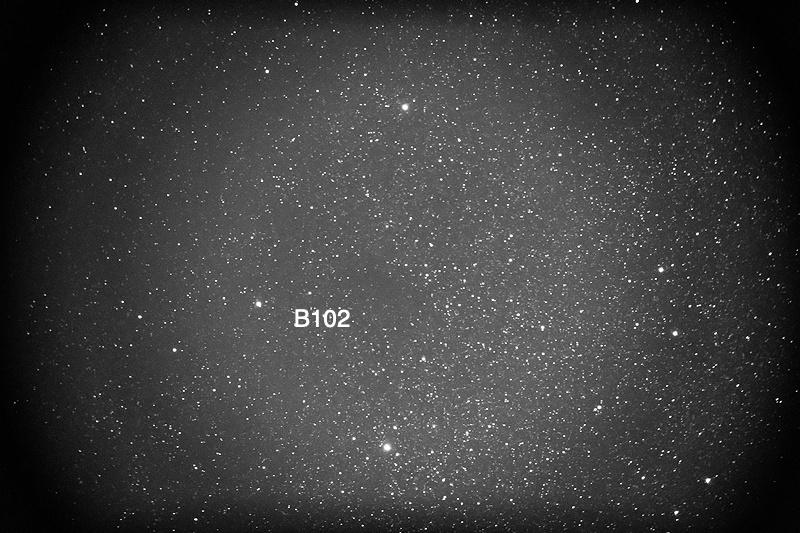
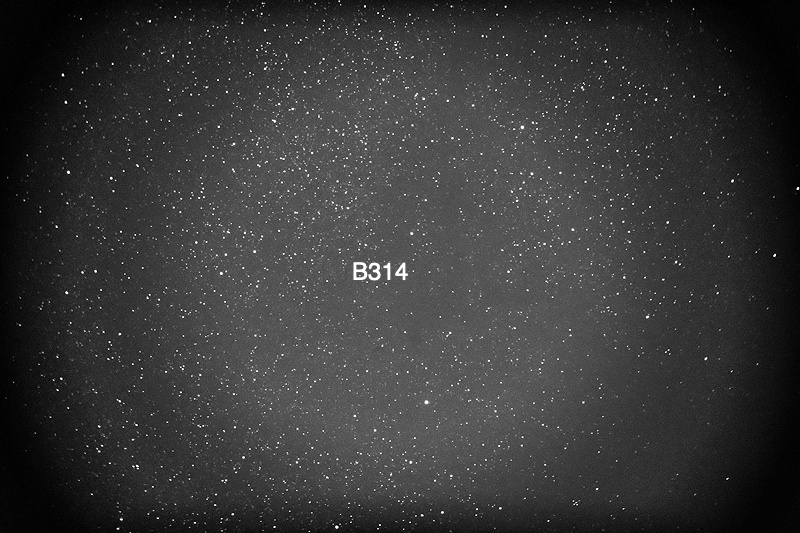
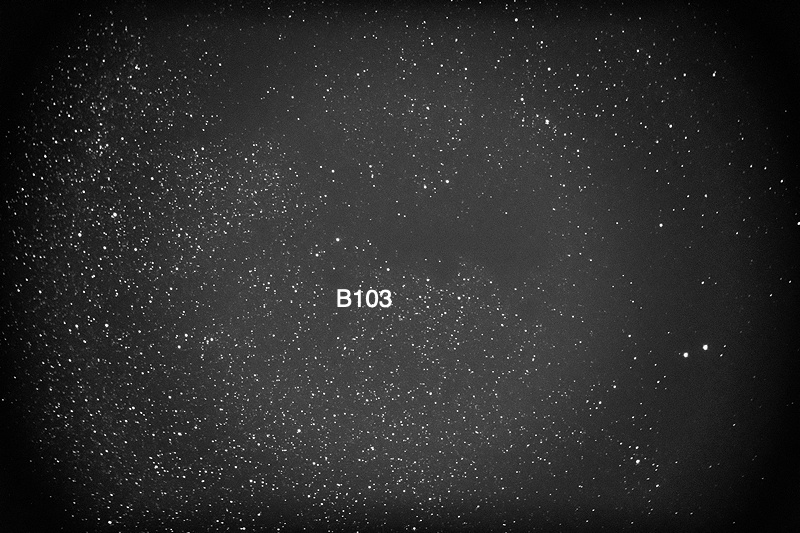
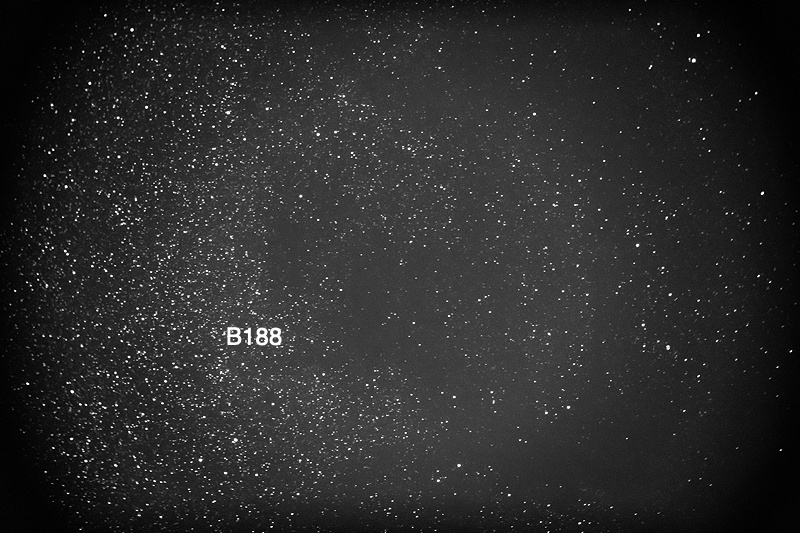
2025 MST: When I first imaged B188, guided was not good. A flashing satellite that photobombed the image was the culprit.
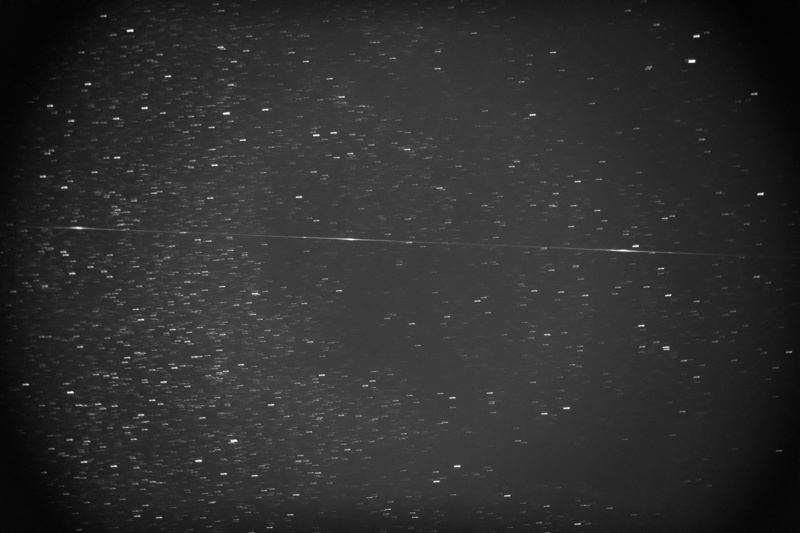
2035 MST: StarLock OFF.
Viewed Mirach's Ghost (NGC404, galaxy), 102X.
Viewed Andromeda Galaxy (M31), 102X.
Tried to observe Stephan's Quintet, 102X. Unfortunately, the galaxies were too faint and too small to be seen in my 12" telescope on this night. Fortunately, I had observed them using the WIYN 3.5 meter telescope at Kitt Peak on the previous night.
2047 MST: LX600 OFF.
2104 MST: Took a Sky Quality reading.
|
Close: Saturday, 5 October 2024, 2106 MST Temperature: 76°F |
Session Length: 3h 11m Conditions: Clear, SQM 20.71 |
Comments are welcome using Email. Please read the Email Etiquette guidance.
Cassiopeia Observatory Home Page
Copyright ©2024 Michael L. Weasner / mweasner@mac.com.
URL = http://www.weasner.com/co/Reports/2024/10/06/index.html
